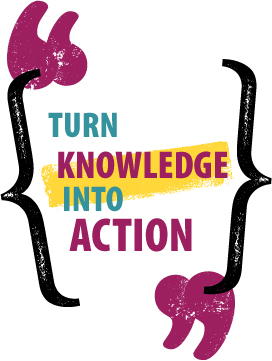Benefits Counseling for Adults

People who receive disability benefits may not know that they can work and still receive needed Social Security benefits like health insurance.
As service providers, we are able to provide people with access to the information and resources that may help them better understand their benefits. This assistance may not only provide better understanding of their benefits, but also how they can work AND can keep the benefits they need through work incentives.
Practices | Strategies | Tools

Promising Practices
Following are some goals to strive for to improve an individual's understanding of the benefits they receive and the use of work incentives. You can help individuals connect to resources to supplement services and supports you provide.
Goals of Work Incentives Benefits Counseling:
These are some of the outcomes used to measure the success of work incentive benefits counseling activities.
Individuals know work is possible for people receiving disability benefits.
Individuals explore how work incentives can help them achieve their goals.
Individuals understand the importance of reporting their work and earnings and how to do it.
Individuals know how to contact a work incentive benefit specialist for help and support with their disability benefits.
Work Incentive Benefits Counseling Data
Why is benefits counseling considered a promising practice?
Researchers have repeatedly documented that work incentives counseling services can improve the employment outcomes of individuals with disabilities receiving Social Security disability benefits.
Source: Gruman, et al., 2010; Livermore, G., S. Prenovitz, and J. Schimmel, 2011; Nazarov, 2013

Strategies
Explore these strategies to approach benefits counseling information sharing in a new or different way. These strategies can be incorporated into your practice to address barriers, meet the specific needs of an individual, or approach services in a different way.

Communication and Engagement Strategies
These suggestions are based on lessons learned by Wisconsin Work Incentive Benefit Specialists.

Training Tips
Listen to individuals and families to determine where they are “at”. Every person is dealing with unique circumstances. Be flexible and adapt your approach as needed. Listen to what for what is most important and relevant to the individual or family you are working with rather than going through a prescribed checklist.
Support individuals in connecting to services like employment (including VR), Work Incentive Benefits Counseling, and Financial Coaching and Planning. Help them prepare for meetings, applications, or calls. Be there when they make phone calls, accompany to meetings, and be there when filling out applications. Take time to thoroughly explain services in understandable terms.
Recognize that literacy challenges and learning disabilities in individuals and family members are sometimes mistaken for lack of engagement and motivation.
Use a consult/coaching model to share information about work incentives. Don't provide answers but rather explain options so an individual can make an informed choice.
Tools
Following are some tools and resources to learn more about Work Incentive Benefits Counseling.
Sources:
Gruman, C., N. Shugrue, K. Kellett, J. Robison, and A. Porter. 2010. "Medicaid Infrastructure Grant: The Impact of Benefits Counseling and Vocational Rehabilitation on Earnings." Working Paper. Farmington, CT: University of Connecticut Health Center.
Livermore, G., S. Prenovitz, and J. Schimmel. (2011). "Employment-Related Outcomes of a Recent Cohort of Work Incentives Planning and Assistance (WIPA) Program Enrollees." Final Report. Washington, DC: Mathematica Policy Research.
Nazarov, Zafar E., Can Benefits and Work Incentives Counseling Be a Path to Future Economic Self-Sufficiency for SSI/SSDI Beneficiaries? (August 2013). Available at SSRN: http://ssrn.com/abstract=2308947



